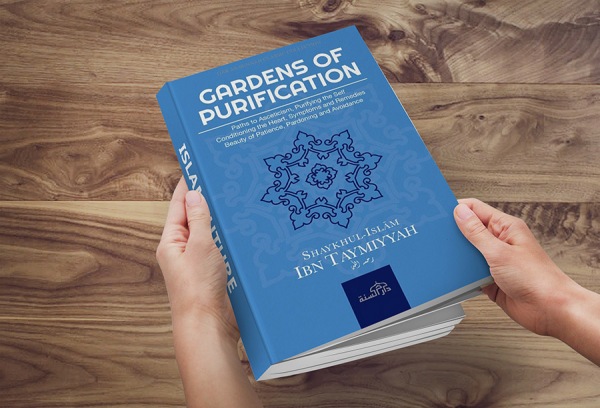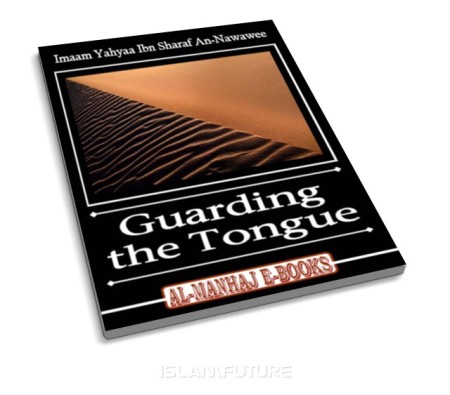
Shaykh ul-Islaam ibn Taymiyyah
Language: English | Format: PDF | Pages: 35 | Size: 1 MB
This book contains a collection of letters demonstrating a side of the personality of Shaykul-Islaam ibn Taymeeyah which is not commonly recognized. Usually, it is his tough and uncompromising stances and his truthful, sometimes harsh retorts that are remembered. However, as this work demonstrates he was also a concerned son, a devoted teacher and a passionate defender of the religion. These letters were selected and introduced by Shaykul Muhammad Sulaiman al-Abdah.Born in Syria in 1941, and now residing in London, he has taught in the religious institutes and the Islaamic University of Madeenah. He now devotes his time to work in Islamic Da’wah.
All praises are due to Allaah. We praise Him, seek His help, and ask for (His forgiveness. We seek refuge in Allaah from the evil in our souls and from our sinful deeds. W’hoever Allaah guides, no one can misguide. And whoever Allaah misguides, no one can guide. I bear witness that there is no one worthy of worship except Allaah. And I bear witness that Muhammad (SAAS) is His servant and messenger.
In their search for worthy examples, people tend to look to the past, hoping to resurrect the legacy of those great and honourable men who contributed greatly to the Ummah through their knowledge, wisdom, and courage. It is said that the people agonise when they find no one of significance to look up to. Fortuitously, society does not solely consist of the living, but also the dead. The greatest of the dead are still alive amongst us.
One of those unique men in lslaamic heritage was the dignified Scholar and valiant Mujaahid: Ahmad bin ‘Abdul-Haleem bin Taymeeyah. He was one of the most eloquent and truthful men in analysing the lslaamic mentality and methodology. Yet when we return to the lslaamic heritage, we should not be solely and sentimentally attached to the past, without it materializing and forming the basis and drive for our present and future. This is what we hope to achieve in this book.
Much of the heritage of Shaykh ul-lslaam IbnTaymeeyah has been published; yet it is still worth appreciating the age in which he lived and some of the features that it enjoyed, and crucially, the reasons behind the sending of the letters that are the subject of this book. The letters are predominantly extracted from two books: Majmoo’ ul-Fatawa, and al-‘Uqood ud-Durreeyah, and, except the letter to the Christian king, are from his time in prison.
Ibn Taymeeyah was born on 10th Rabi al-Awwal 661 AH (1263 CE) in the town of Harran in the province of Jazeerah (1). He was a descendent of a very well known and established family, characterized by excellent memories and beauty of expression. His father, the Shaykh ‘Abdul-Haleem was a scholar of hadeeth, and his grandfather was Majdudeen Abul-Barakat, the author of Muntaqa al-Akhbar (2). Says the grandson, “Our grandfather was phenomenal in memorizing hadeeth, narrating them and in knowing people’s schools of thought.”
lbn Taymeeyah was born in an age of great cultural and political upheaval. It was only five years prior to his birth that Baghdad was ravaged and mercilessly destroyed by the Tatars, and his family had to flee to Damascus when he was young. The savagery of those invaders had undoubtedly given the boy a deep hatred of oppression, and further instilled in him courage to fight the enemy.
The age of lbn Taymeeyah was also characterized by the rise of many disciplines. The underlying themes of these sciences, were their depth, breadth, and their authors’ attempts to fuse the rising sciences together. Indeed, many of the books resembled encyclopaedias. lbn Taymeeyah had benefited from such an environment, but at the same time he did not content himself to that which he was taught. Instead, he was diligent in learning but maintained an independence of thought. This meant that he was not restricted to one teacher or school of thought, and thereby he gained from all, and produced novel ideas. This search for knowledge led him to be familiar with many of his age’s cultures and creeds. He wrote extensively on beliefs, explaining the true one and rebuking those who disagreed; but tafseer (explanation of the Qur’aan) remained the subject that always captivated him. “I might read a hundred interpretations of one verse, but would still ask Allaah’s guidance in its comprehension saying, ‘Oh teacher of Aadam and lbraaheem teach me!’ I would also go to the deserted masjids and ask Allah, ‘Oh teacher of lbraaheem! Make me comprehend.'” His contemporaries were quick to recognise his merit, as al-Qadi az-Zamalkaanee gave a true description, “Just as Allaah had made iron soft for Daawood, He made sciences supple for Ibn Taymeeyah’s grasp.”
Why was Ibn Taymeeyah such a distinguished figure, one might ask. Firstly, there was his constant and unbroken bond with the masses of Muslims, for he was their teacher and mentor, he would resolve their problems and defend their rights in the face of the rulers. He would try to keep them steadfast when their enemies attacked, he would enjoin the good and forbid the evil, and most especially, he was not diverted by mundane worldly matters. Therefore, the whole of his time was devoted to attaining knowledge and participating in jihads. Indeed, it was this strong connection that made the general masses of Damascus love, respect and honour him. Even the most jealous of his enemies were not able to harm him there, but instead they had their chance in Egypt where he was not as well known.
These sincere feelings for the affairs of Muslims can be sensed when Shaykh ul-lslaam spoke regarding politics, “Civilisation is rooted in justice, and the consequences of oppression are devastating. Therefore, it is said that Allaah aids the just state even if it is non-Muslim, yet withholds His help from the oppressive state even if it is Muslim.” He also said,”There are sincere Muslims who perceive that commanding a high post (3) inevitably leads to love of rule and wealth. Some common Muslims regard the acceptor of such responsibility, as a turning away from the ‘religion of mercy and humbleness’. However, the correct attitude is that the appointment of the virtuous serves the Ummah far better than assigning posts to the wicked.” His concern was also with the public in economic problems, attacking those who establish monopolies over foodstuffs, “In times of need, the ruler can force people to sell their goods at their original value!” Continue reading →









